The Institute for Regenerative Engineering’s latest research paper, “Simple Signaling Molecules for Inductive Regenerative Engineering”, has been accepted for publication by the high-impact peer-reviewed journal, PLoS One. Written by researchers from our institute, the University of Virginia, the Hospital for Special Surgery in New York, and SASTRA University in India, this paper represents a paradigm shift in the field of regenerative engineering wherein simple signaling molecules can be utilized in place of recombinant protein growth factors.
The results presented in this report corroborate our novel theory that the simple signaling molecules of calcium and phosphate ions possess intrinsic bone-formation activity which is carried out by the induction of cell-based bone-formation protein-growth factor (Bone Morphogenetic Protein-2, BMP-2) production and secretion. In addition, a review of published biochemical research has revealed that a number of simple signaling molecules exist that possess similar behavior to calcium and phosphate ions which we have collectively termed inducerons (see figure). These small molecules are uniquely capable of inducing stem- and progenitor-cell differentiation down desired lineages utilizing protein growth factor-based inductive loops. The problems associated with using BMP-2 in bone graft substitutes such as cost and long-term safety are also issues with utilizing protein growth factors in other translational biomedical engineering strategies. Since these inductive molecules can be released from stable, inexpensive materials (e.g., CaP), their long-term delivery can be achieved through a wide variety of controlled release strategies compared to the relatively few options available for fragile, expensive protein growth factors. Utilizing the principles of biology, engineering, morphogenesis, stem cell technology, and materials cues, regenerative engineering represents a novel approach in which the body is induced to regenerate its own complex tissues and organs. This new concept of inducerons may compel regenerative engineering strategies to become the gold standard in complex tissue- and organ-replacement therapies.
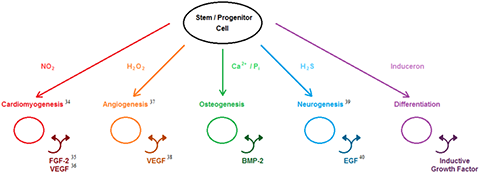
Figure was adapted from Cushnie EK, Ulery BD, Nelson SJ, Deng M, et al. (2014) Simple Signaling Molecules for Inductive Bone Regenerative Engineering. PLoS ONE 9(7): e101627.
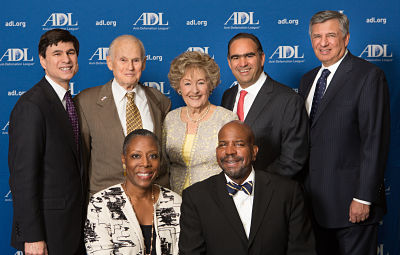 On October 7th, the Anti-Defamation League presented the Torch of Liberty Award to Mr. Max Javit and me. The award recognizes individuals who demonstrate an exceptional commitment to community, justice, and equal opportunity for all. I was deeply honored and humbled to receive it.
On October 7th, the Anti-Defamation League presented the Torch of Liberty Award to Mr. Max Javit and me. The award recognizes individuals who demonstrate an exceptional commitment to community, justice, and equal opportunity for all. I was deeply honored and humbled to receive it.
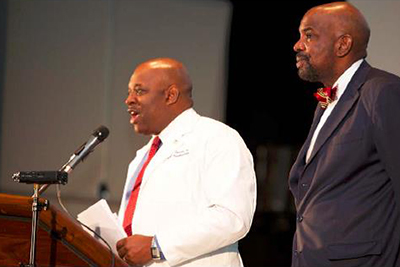
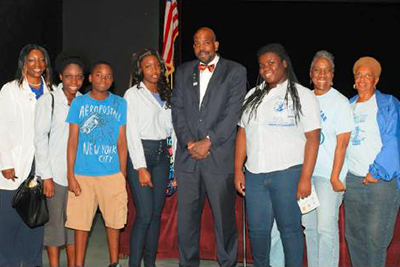
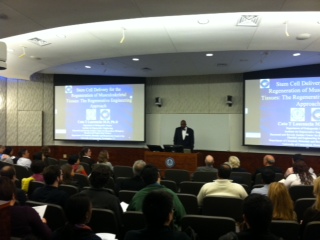
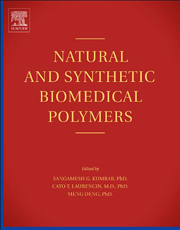 The Institute for Regenerative Engineering will launch Natural and Synthetic Biomedical Polymers in February, 2014. Published by Elsevier Science, this textbook summarizes the main advances in biopolymer development in the last decade. We believe it will be extremely useful for researchers in formulating their polymers with desirable physical, chemical, biological, biomechanical, and degradation properties for specific, targeted biomedical applications. I thank all the authors for their outstanding contributions. I also thank co-editors Drs. Sangamesh Kumbar and Meng Deng for all their time and effort in coordinating this.
The Institute for Regenerative Engineering will launch Natural and Synthetic Biomedical Polymers in February, 2014. Published by Elsevier Science, this textbook summarizes the main advances in biopolymer development in the last decade. We believe it will be extremely useful for researchers in formulating their polymers with desirable physical, chemical, biological, biomechanical, and degradation properties for specific, targeted biomedical applications. I thank all the authors for their outstanding contributions. I also thank co-editors Drs. Sangamesh Kumbar and Meng Deng for all their time and effort in coordinating this.